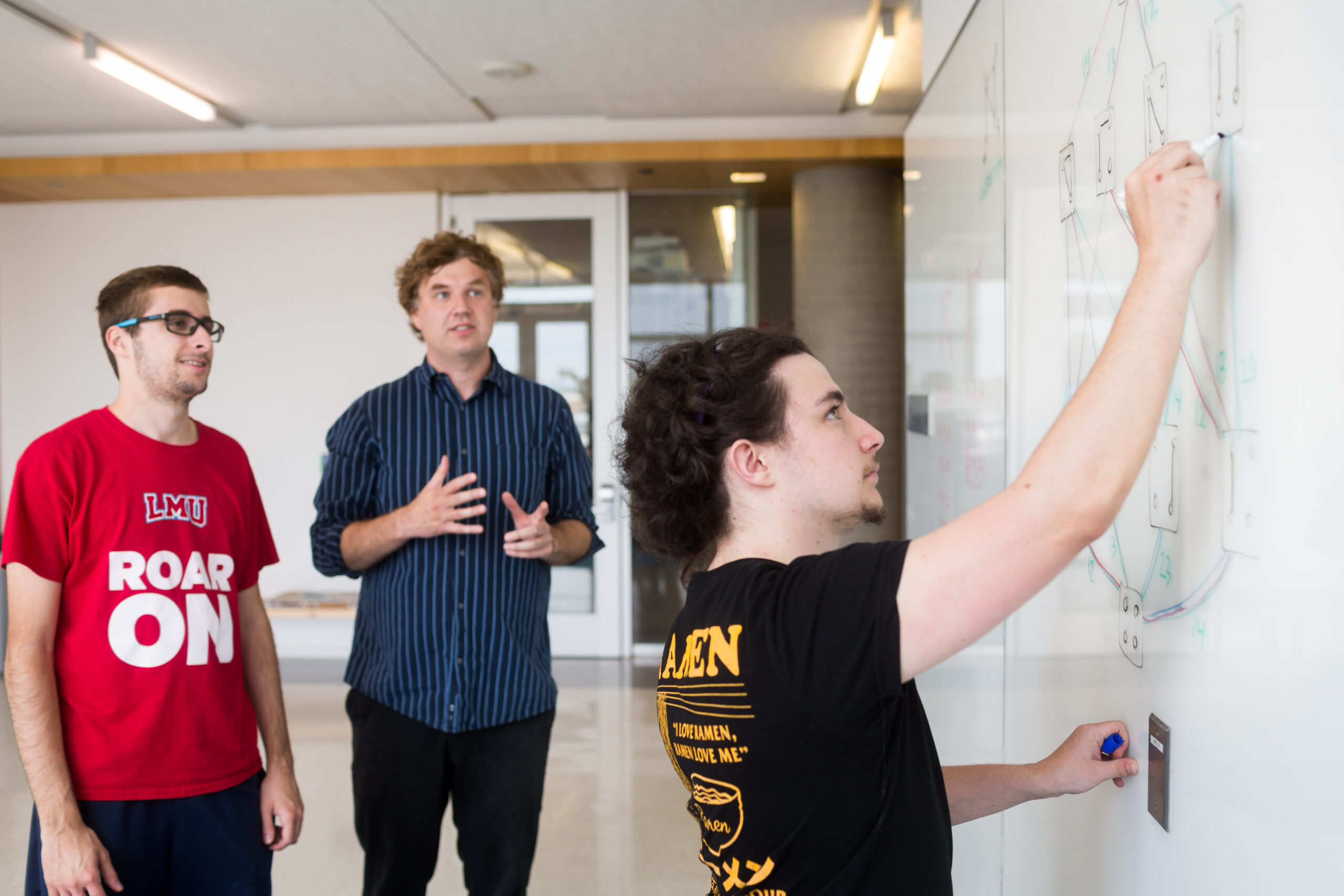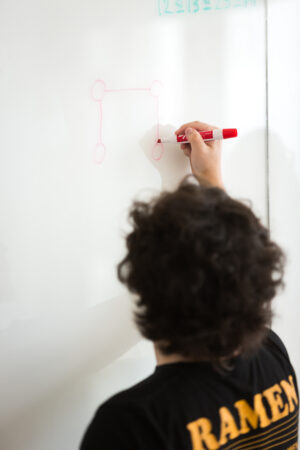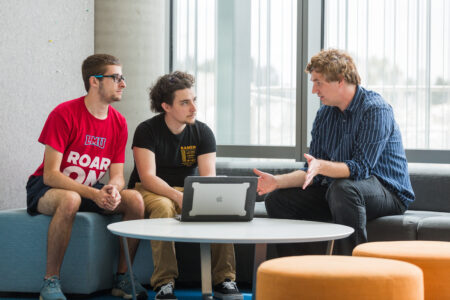
This summer, more than 80 students and faculty made up the Seaver Summer Research Community. The topics ranged from studying the unfolded protein response, to heat transfer properties of different liquids, and more. We connected with some of the students to learn more about their research projects. Today, we spotlight mathematics major Jake Soldera ’24, mentored by Joshua Hallam, assistant professor of mathematics.

Tell us about the research you’re working on this summer.
Our research is in the field of Discrete Math, more specifically, combinatorics and graph theory. The graphs we are looking at are not your typical cartesian plane graphs (i.e., an “X Y” coordinate system), but rather series of points connected by lines. We are looking at objects called “bond lattices”, which are essentially graphs of these graphs. We are playing around with the graphs to look for patterns and connections with how these bond lattices act when we apply different counting methods to different graphs.
How does your research relate to other fields?
Discrete math is somewhat niche to mathematics, but it is also important in computer science and chemistry. For example, the bond lattices that we are looking at look a lot like molecular structures. Additionally, graph theory is extremely useful in describing computer science topics such as networks or data structures. Other applications are so far unknown, but hopefully the seemingly-abstract patterns we find will be useful to those in other fields.
What’s the biggest lesson that you’ve learned from your research?
Getting a taste of “real” math research is very important to math majors who have only ever taken math classes. When in a math class, the professor will know how to solve all of the problems given on homework and tests, but in math research, the professor is often a helping hand and source of knowledge for the students to come to their own conclusions. In a math class, the direction of study is set by the curriculum, which the students typically follow closely. In math research, the students help decide what path to take next based on what they find interesting in the results that they themselves discover.
How does your research compliment your coursework?
Coursework creates the foundations upon which research can be furthered, and research greatly benefits from students having worked with the topics at hand. When a student is in class, asking good questions is vital to creating a strong understanding of the coursework. This skill is also important to knowing what to actually research, since the topic and the depth at which we study these topics are completely up to us rather than what a professor has chosen for a specific class. Likewise, hitting a wall in research presents one with a decision to make: to continue working and try to find a new solution, or to go in a different direction with their research. I believe that it is important to not give up immediately, but also to know when a topic has dried up, so to speak. In a class, hitting a wall can be incredibly stressful; not being able to answer a question on homework or on a test results in a lower grade. The ability to think around these walls is incredibly important in not just academia, but issues we all face in life, and research allows for a less-stressful space to practice mental resilience and flexibility.

Do you have any advice for someone on the fence about doing research?
Once a student graduates, it can be very hard to know whether the right decision is to immediately join the work force, to go to grad school, or to change the direction of their life entirely. Research, especially with a professor that a student gets along with, gives them a taste of the academic side of their chosen major. I am personally very happy with my decision to do research since I love my math classes, but I was very much in the dark about what math research actually looks and feels like. Getting this experience will look good on my résumé, sure, but the experience was inherently beneficial to my ability as a mathematician and someone who will one day use my math abilities to sustain a career and solve problems for the world.
Edited by Noemie Boucher ’25



